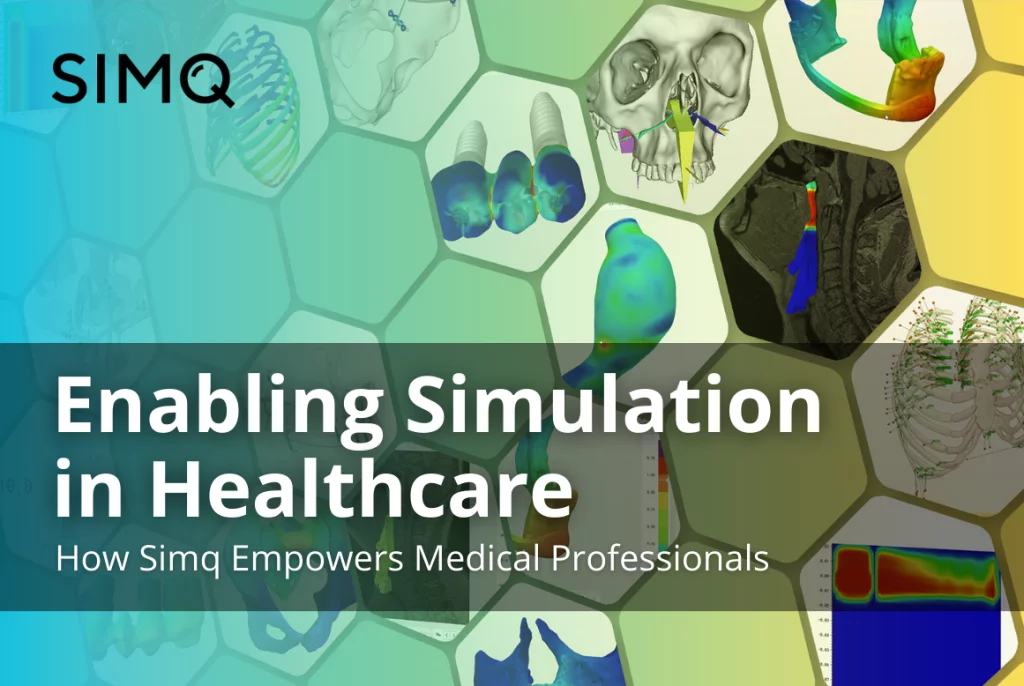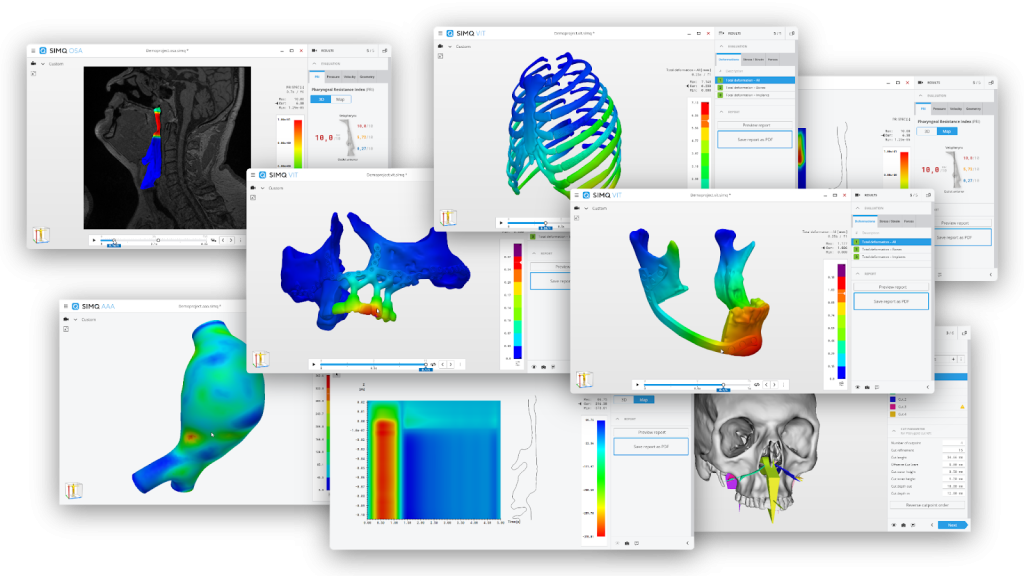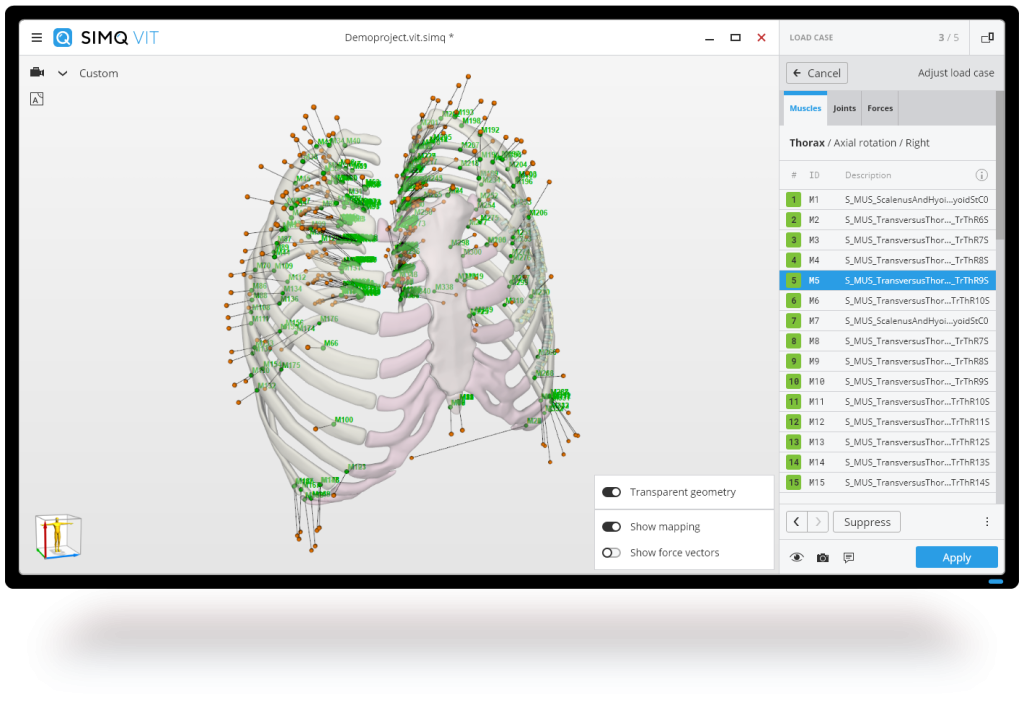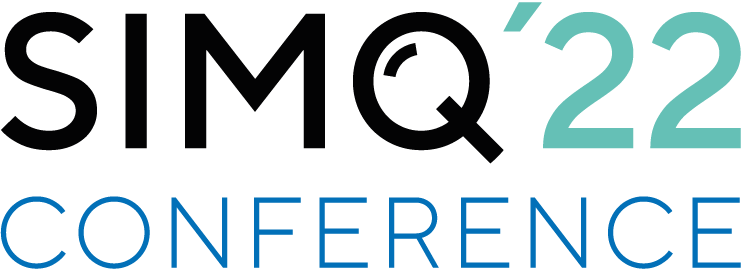
Integrating advanced technological tools is crucial in today’s healthcare environment, where precision and efficiency are paramount. Simq is pioneering this integration by making sophisticated simulation tools accessible to medical professionals, effectively bridging the gap between complex technology and practical medical use. These tools are not merely enhancements but are essential instruments that empower healthcare professionals to improve diagnostic accuracy and optimize treatment plans.

The use of computer simulations is being further strengthened by the regulatory authorities. One aim is to regulate mass customization in medicine more strictly. The FDA and MDCG want medical device manufacturers to take on more responsibility for customized implants.
By simplifying the user experience, Simq ensures that simulation technology’s transformative potential can be realized across the broader medical community, enhancing patient care and operational efficiency in healthcare settings.
This blog explores how Simq’s innovative software interfaces democratize simulation technology, enabling healthcare professionals to enhance service delivery and improve patient outcomes.
Learn more about our approach at Simq’s technology overview.
The Challenge of Complexity in Medical Simulations
Traditionally, simulation tools in medicine were designed with a high level of complexity, suitable only for those with specialized engineering knowledge. This limitation severely restricted their use to a small subset of medical experts, typically at large, well-funded institutions that could afford such specialized skills.

The first easy-to-use software for digital verification of patient-specific implants. By virtually applying physiological or standardized loads to a patient-specific situation, the performance and safety of implants can be verified quickly and efficiently based on objective criteria.
According to sources like Digital Engineering 247, the need for intricate programming and detailed model construction made these powerful tools inaccessible for everyday clinical use [1]. As highlighted by Engineering.com, the need for more user-friendly interfaces hindered the widespread adoption of these technologies, resulting in missed opportunities for enhancing patient care through advanced predictive analytics and scenario modeling [3].
These barriers have underscored the urgent need for more intuitive and accessible technologies that can bring the power of advanced simulations to a broader audience of healthcare providers.
To address these complexities, Simq provides specialized software solutions that simplify the simulation process, making it accessible to non-engineers.
Simq’s Solution: User-Friendly Medical Simulation Tools
To address these challenges, Simq has developed various simulation tools that prioritize user-friendliness without compromising the depth and functionality required for medical applications.
Das Video wird von YouTube eingebettet und erst beim Klick auf den Play-Button geladen. Es gelten die Datenschutzerklärungen von Google,
The interface of Simq’s tools is designed to guide users through the simulation process with step-by-step prompts, making complex simulations more approachable for non-technical users. These features align with the broader movement towards CAE democratization, aiming to extend the reach of sophisticated engineering applications to non-specialists [Sources [2], [4]].
This initiative is crucial in environments where rapid decision-making is needed, such as emergency rooms or surgical planning. Simq’s tools can provide quick and reliable analyses to support critical medical decisions.
The Impact on Healthcare Professionals and Treatment Quality
Integrating Simq’s simulation tools into healthcare practices has marked a significant shift in how medical professionals engage with technology. Surgeons, for instance, can simulate different surgical approaches to determine the most effective strategy for individual patients, thereby reducing the risk of complications and enhancing recovery times. Examples of this kind are Simq VIT for virtual implant testing and Simq OSP for personalizing standard implants. Another Simq tool for surgical planning is Simq RPE, which helps reduce one of the main risks of rapid palatal expansion – asymmetric face widening.
Das Video wird von YouTube eingebettet und erst beim Klick auf den Play-Button geladen. Es gelten die Datenschutzerklärungen von Google,
General practitioners also benefit by more accurately predicting disease progression and response to treatments, which can be pivotal in chronic disease management. The Simq OSA software for better diagnoses of obstructive sleep apnea is a tool that supports the diagnosis of severe snoring and obstructive sleep apnea. Simq AAA is a tool that combines simulation with machine learning to help estimate the rupture risk of abdominal aortic aneurysms.
By empowering healthcare professionals with these tools, Simq is enhancing the precision and effectiveness of medical care across various specialties. Implementing Simq’s user-friendly simulation tools has led to numerous direct benefits in patient care, notably in enhancing the accuracy of diagnostics and the effectiveness of treatment protocols. We recommend looking into the Simq customer success stories to gain a deeper insight.
More precise simulations mean that healthcare providers can anticipate potential complications and outcomes more confidently, improving patient safety and satisfaction. Additionally, the streamlined operations facilitated by these tools contribute to reduced healthcare costs and resource use, as highlighted by Design News [5]. Hospitals and clinics that adopt these tools find that they can offer more personalized care without the overhead of extended trial-and-error processes, fundamentally transforming how patient care is approached and delivered.
Future of Healthcare: A Tech-Driven Landscape
The ongoing democratization of simulation technology points towards a future where such tools are standard in healthcare practices, not just specialized applications. The progression reported by Digital Engineering 247 indicates a trend towards more widespread adoption and innovation in simulation technologies, paving the way for more holistic and integrated healthcare systems [1].
As these tools become more embedded in everyday medical practices, they will continue to evolve, potentially incorporating artificial intelligence and machine learning to enhance their predictive capabilities further. This evolution will undoubtedly expand the scope and depth of simulations, making them an indispensable part of medical education and practice.
Simq’s commitment to making sophisticated simulation tools accessible to non-engineers is reshaping the healthcare technology landscape. By lowering the barrier to entry and making these powerful tools available to a broader range of healthcare professionals, Simq is not only advancing medical technology but also fostering a more inclusive approach to patient care.
This evolution in healthcare technology is instrumental in ensuring that all medical professionals have the best tools to deliver high-quality, personalized patient care.
Ready to see how Simq can transform your healthcare practice?
Schedule a free demo today!
Sources:
[1] https://www.digitalengineering247.com/article/democratizing-simulation-a-progress-report
[2] https://revolutioninsimulation.org/democratizing-simulation-delivering-measurable-results/
[3] https://www.engineering.com/story/the-path-to-simulation-democratization
[4] https://www.simscale.com/blog/cae-democratization/
[5] https://www.designnews.com/design-software/the-democratization-of-computer-aided-engineering





